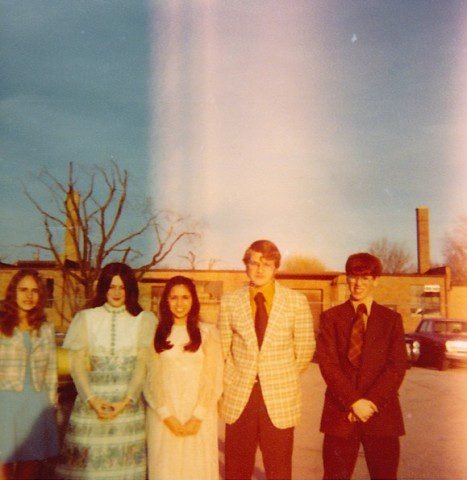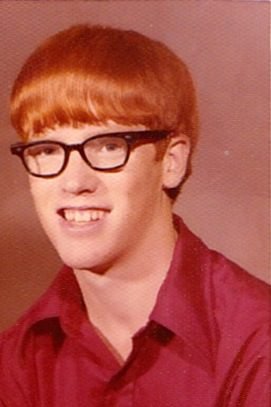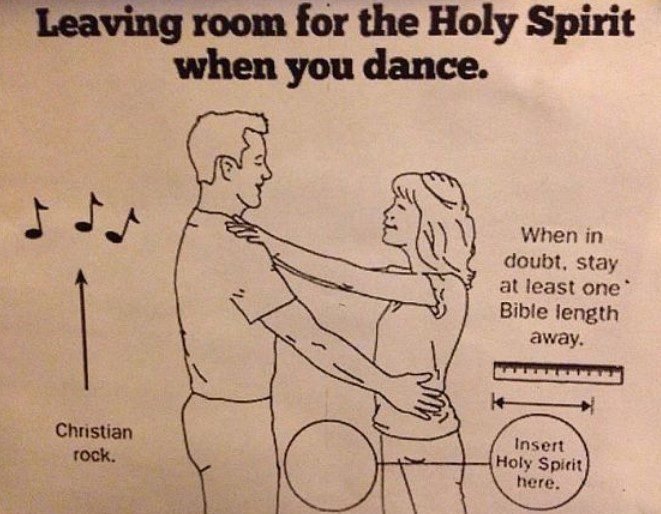
As a fifteen-year-old boy at Trinity Baptist Church in Findlay, Ohio, I attended my first all-night prayer meeting. Trinity was a fast-growing Independent Fundamentalist Baptist (IFB) church, nearing 1,000 in attendance. The pastors and deacons decided that the church needed the men of the congregation to spend a night storming the throne room of Heaven. I’m not sure if there was an exact reason for the prayer meeting, but I suspect it had to do with the church’s troubled building program and the continued evangelization of the lost. At the time, Trinity met in a building on Trenton Avenue. Maxed out seating-wise, Pastor Gene Milioni and the congregation decided to build a large, round building on land donated to them by Ralph Ashcraft on County Road 236 east of Findlay. At the time, the land was farmland. Today, it is surrounded by housing and commercial businesses.
Trinity tried to fund the construction project by selling bonds to congregants. According to Peach State Financial, church bonds are:
a form of fixed-rate financing typically used to finance church expansion. What are church bonds? Church bonds are certificates of indebtedness which are sold by churches to create funds for church construction, purchase, or renovation. The church is acting as the borrower and the bond investors who are often times church members are the lenders.
The church bonds issued by the church are sold by the church broker dealer who acts as the lender who follows certain guidelines in the transaction. The church is not required to sell the bonds.
….
The interest rate earned on church bonds for the investor generally runs from 4.5% to 8.5%. Bank savings accounts and Certificates of Deposit pay only a fraction of this amount. A church bond program is a win-win situation for the church and it’s members.
These bonds were, in essence, loans by church members to the church, featuring handsome interest rates upon repayment. Such bond programs were common among growing IFB churches at the time. The risk, of course, was that the bonds were not insured or guaranteed. While I am not certain of the exact details, I believe Trinity’s bond program was fraught with problems, including running afoul of securities laws and late repayment. The church eventually paid off all the bonds and became debt-free.
On that night in 1972, the “need” was palpable. God was moving and working at Trinity Baptist. The buildings and buses were filled to capacity. Three pastors were on staff full-time. Virtually every Sunday, souls were being saved and members added to the membership. A few months prior, I had been saved, baptized, and called to preach. My heart burned with passion for Jesus and the salvation of sinners. Well, that and girls. Gotta keep it real . . .
At the appointed time, a handful of church men and teen boys gathered in the church auditorium for prayer. Some of the pray-ers, planned on praying all night, while others had signed up for specific times, say 1:00-3:00 AM. I, along with several of my youth group friends, planned on “praying” all night. While we intended to fervently and dutifully pray, the thought of a night away from home with friends proved to be the driving motivation for our attendance. We quickly learned that praying for any length of time was hard. Up until that night, my longest prayers were minutes, not hours long. I found myself running out of things to talk to God about. “Surely, he heard me the first time,” I thought, so it seemed to me a waste of time to keep bugging God about the same things over, and over, and over again. However, I went through the motions, kneeling at the altar with the men of the church. I am sure they thought I was quite a “spiritual” boy. Recently called to preach, I am sure they thought that great things awaited the Gerencser boy. Unfortunately, as time wore on, restless, jokester, goof-off Bruce showed up, and Ray Salisbury, a stern deacon who had a daughter I was interested in, told me that I would have to go home if I couldn’t maintain the proper decorum. All prayed out, I rode my bike home and crawled into bed in the wee hours of the morning. I am sure my pastors were disappointed with my lack of enduring spirituality. I, on the other hand, look back at this story and think, “Man, I was a restless, ornery fifteen-year-old boy. Getting me to sit still for any amount of time was a victory.”
This prayer meeting was my first and only all-night prayer meeting. Have you ever attended an all-night prayer meeting? Please share your thoughts and experiences in the comment section.
Bruce Gerencser, 68, lives in rural Northwest Ohio with his wife of 47 years. He and his wife have six grown children and sixteen grandchildren. Bruce pastored Evangelical churches for twenty-five years in Ohio, Texas, and Michigan. Bruce left the ministry in 2005, and in 2008 he left Christianity. Bruce is now a humanist and an atheist.
Your comments are welcome and appreciated. All first-time comments are moderated. Please read the commenting rules before commenting.
You can email Bruce via the Contact Form.


